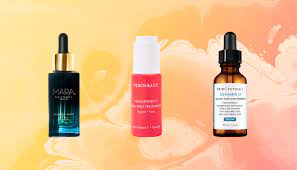NyQuil, a well-known over-the-counter medication, is commonly used for the temporary relief of symptoms caused by the common cold, flu, or allergies. It is often taken at night because of its reputation for promoting sleepiness, making it easier for those who are feeling unwell to get the rest they need to recover. But what exactly in NyQuil makes you sleepy? Let’s delve into the science behind this effect.
Key Ingredients
NyQuil’s formula contains several active ingredients, each designed to tackle a different symptom. The primary components include acetaminophen, dextromethorphan, and doxylamine succinate.
- Acetaminophen is a pain reliever and a fever reducer, helping to alleviate body aches, headaches, and lower fever.
- Dextromethorphan is a cough suppressant. It works by affecting signals in the brain that trigger the cough reflex, helping to reduce the urge to cough.
- Doxylamine succinate is an antihistamine that relieves sneezing and runny nose. This is the ingredient that has sedative properties and is primarily responsible for the sleepiness often associated with NyQuil.
The Role of Doxylamine Succinate
Doxylamine succinate is a first-generation antihistamine. While it’s effective in relieving symptoms like a runny nose and sneezing, it’s also known for crossing the blood-brain barrier and binding to histamine receptors in the brain.
Histamine, a neurotransmitter, plays a crucial role in maintaining wakefulness and alertness. By blocking these histamine receptors, doxylamine succinate inhibits histamine’s action, which results in drowsiness or sedation. This side effect is why many first-generation antihistamines, including doxylamine succinate, are often used as active ingredients in over-the-counter sleep aids.
It’s important to note that not everyone experiences drowsiness when taking NyQuil. The effect varies based on individual sensitivities, dosages, and even the interactions with other medications or substances (like alcohol).
Safety and Precautions
While NyQuil can be a helpful tool in managing symptoms of cold, flu, or allergies, and promoting sleep, it’s crucial to use this medication responsibly. Here are some safety considerations:
- Follow the Recommended Dosage: Overdosing on NyQuil can lead to severe health consequences, like liver damage from too much acetaminophen, or extreme drowsiness and mental confusion from excessive doxylamine succinate.
- Avoid Mixing with Other CNS Depressants: Combining NyQuil with other central nervous system depressants, including alcohol, other antihistamines, or sedatives, can lead to increased drowsiness and other potentially dangerous side effects.
- Not for Long-Term Use: The sleep-inducing effects of NyQuil are intended for short-term use. If you’re having consistent trouble sleeping, it’s important to speak with a healthcare provider to discuss safer, more sustainable options.
- Check with a Healthcare Provider if You Have Pre-existing Conditions: Those with certain health conditions, like liver disease, glaucoma, or respiratory diseases, should consult with a healthcare provider before using NyQuil.
NyQuil can be a beneficial aid for those suffering from cold or flu symptoms, particularly when these symptoms are making it difficult to sleep. However, it’s the antihistamine, doxylamine succinate, that induces the drowsiness associated with NyQuil. Always use NyQuil responsibly and in accordance with the packaging or a healthcare provider’s instructions to safely harness its benefits.











